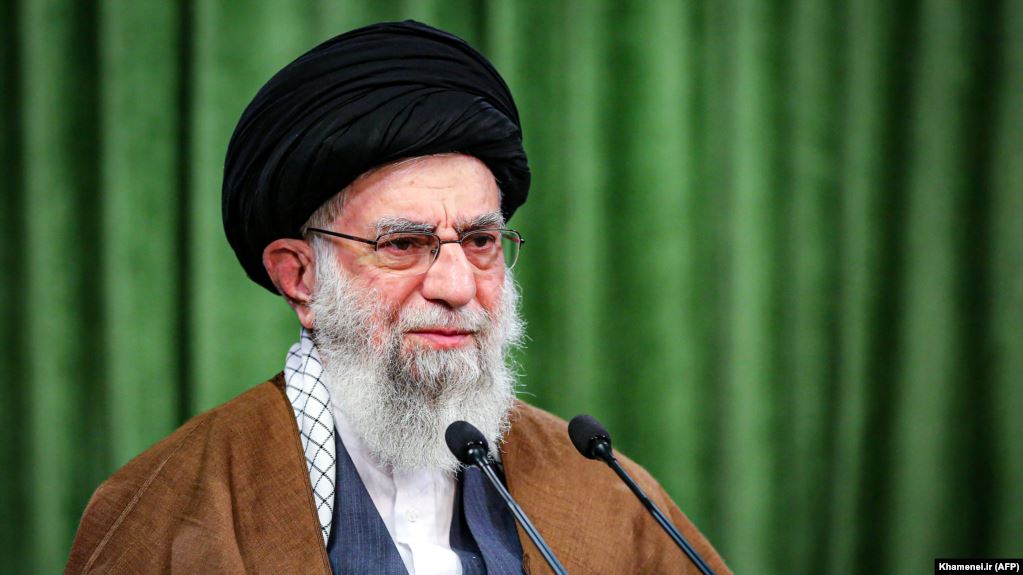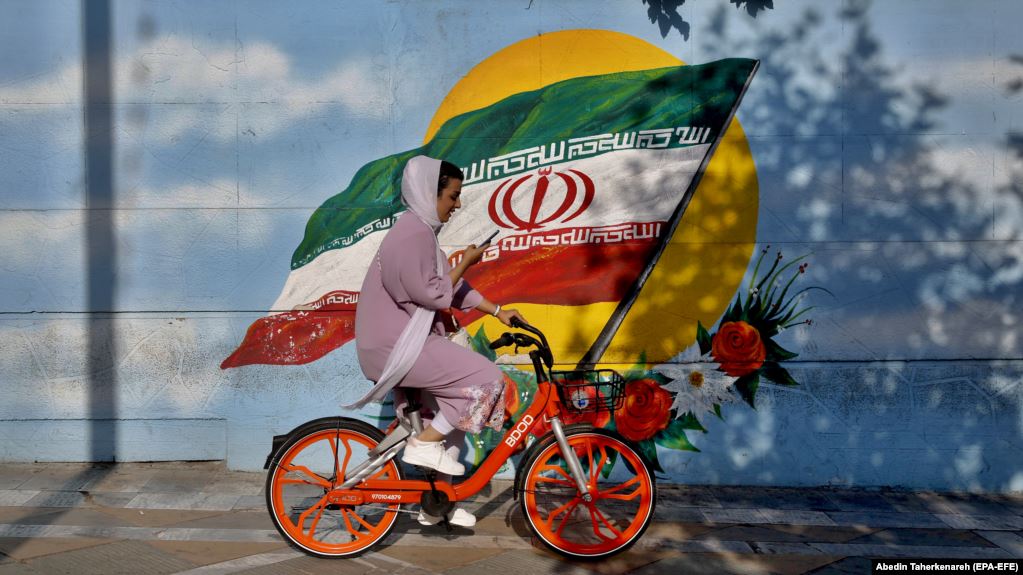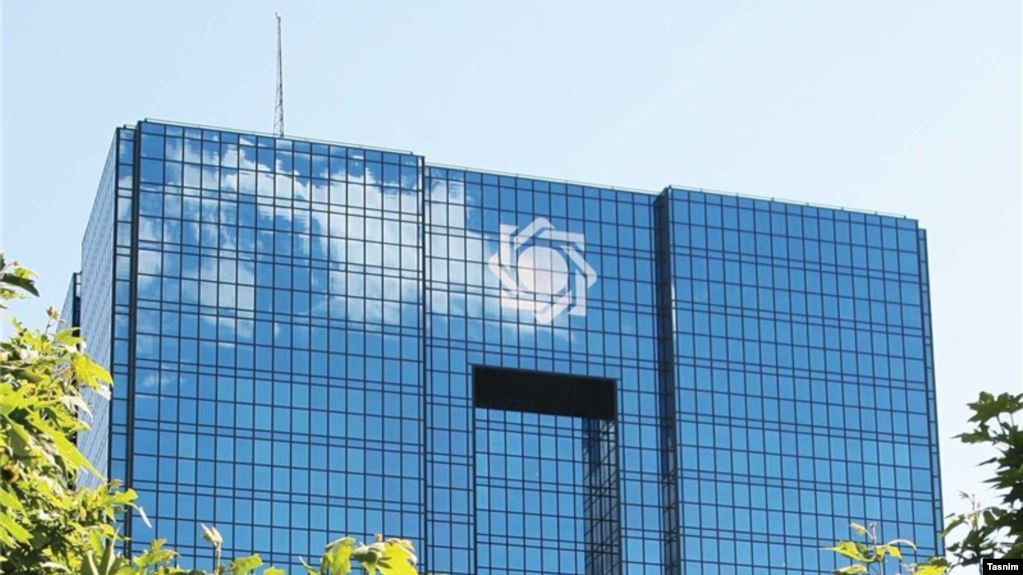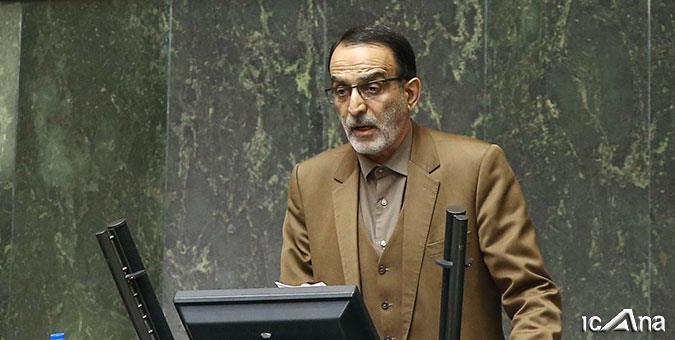
The Painful Reality of Immigration
The editorial of Etemad written by renowned human rights activist Emadodin Baghi deals with the plight of immigrants in Iran and the consequences of migration.
There are numerous cases of suicide due to poverty, cases of immigrants drowning who were just looking for jobs, humiliation suffered by immigrants in refugee camps, an increase in prostitution due to poverty, etc. But here I want to focus on two direct poignant observations that I recently witnessed.
I saw three youths who had graduated in the medical field and were ready to get out of the country. One of them argued that his friend, a graduate in pharmacology, had immigrated to Afghanistan and is paid $7,500 per month. My second observation was about workers at a construction site who had migrated to Iraq to get paid $60 per day.
These numbers are not considered high in those countries, but are very high for a country where the national currency has collapsed. Iranian officials must understand that the issue of migration across all population segments is very significant. Such observations are not rare and do not just undermine national pride; one can also hear the sound of the crushing of the nation’s dignity and humanity.
People whose country is one of the richest in the world are under so much pressure to earn a living in the face of rising unemployment, and amid an increasing sense of hopelessness, are forced to make difficult choices. Under these circumstances, what is the use of having intercontinental missiles? There is no doubt that in a world full of bullies, it is a must to have a defensive strategy. But what is the use of it when people are not happy, free, and doing well?
Instead of preparing for the outcomes of a hostile world by spending money on defense, we must focus on development and people’s welfare which requires rational strategies. Economics is a science, politics is a science, sociology is a science, management is a science. The country should be run according to science, not by slogans that will bring nothing but poverty and suffering to the people.
Praying for a Decrease in Prices
When Iranian First Vice President Eshaq Jahangiri was recently asked by a reporter about high prices, he said people should pray so that prices go down. The editorial of Mostaghel slams Jahangiri for shirking responsibility in this regard.
In reply to a question about high prices and increasing inflation, Jahangiri said: “Pray so that the prices go down!” Earlier, Iranian President Hassan Rouhani had criticized the White House, holding the US administration responsible for Iran’s economic disarray. He said that if people want to curse at someone for the country’s problems, their anger should be directed the White House.
But what is self-evident for the people is that their livelihoods have nothing to do with cursing or praying! Managing the dire situation which we can see now requires good governance. The current numerous escalating problems people are facing now are the outcomes of mismanagement and the incompetence of officials. These problems need to be fixed with scientific management.
This is not to deny the role of prayer. Praying can have psychological and complementary impacts on reality. But if praying is going to work, there needs to be a level of organization and proactive management. So we cannot stand by, thinking that people will be saved from mismanagement and poor performance just by praying.
All current issues in Iran are rooted in numerous problems that are the outcomes of human errors – errors made intentionally or unintentionally. Good governance in developed countries is the result of effective management while using scientific methods. If cursing and praying worked, things would have been different.
Overcoming the complicated situation that exists in Iran and alleviating the increasing pressures requires rationality, competent management and foundational and infrastructural measures.
If praying and cursing were the solutions, then Iranian officials would not be in a position to shirk their own responsibilities and ask people to do irresponsible things.
People Head Towards Oblivion!
The editorial of Arman Melli, penned by sociologist Saeed Moayedfar, explains how Iranian people have opted to remain oblivious, thinking that it will make them suffer less.
Iranian officials have not been able to earn people’s trust, mostly because they haven’t been honest with them. In so far as this situation continues, there is no chance for creating hope in society.
We can solve an issue when there is enough time; when there is not much time left, it only takes a miracle to resolve the issues. No longer can we move towards a better future by just analyzing the situation. If the officials admit that they have made a mistake and must make amends, then we enter the second phase, facing the fact about whether the country can be saved from this crisis.
Several times, officials have asked people to trust them, and people have done so. But now it seems impossible for people to trust officials. Many people used to put their faith in the media, which has, in actuality, lost its efficiency. When the relationship between the elites and the people is compromised, the media cannot generate hope.
On the other hand, the level of reading is deplorably low. People have not only lost trust in public officials, but they no longer trust the media and the elites. There was a time when they said that a university professor could change people’s views with his words. But denouncing the elites has discredited this group, making them ineffective.
Universities in Iran are not in good condition. Any institution that can create hope in society is now sidelined. There is a great deal of analysis available now, but the situation is so untransparent that no one can present the right path forward, or even claim that he knows what such a path is.
Such conditions exist in neighboring countries, as a result of which the region has somehow lost hope. This is mainly because there is no firm ground for social solidarity any longer. Meanwhile, we are witnessing that people are willingly heading towards a state of oblivion to suffer less. This is the worst case scenario in society and will result in hopelessness.
Corruption and Weak Government Oversight
The editorial of Tejarat online focuses on how the lack of proper government oversight of the market has resulted in corruption in Iran’s economy.
One of the most serious issues challenging production is the high profit margin that goes to dealers and brokers. In reality, there is not enough oversight of economic activities. In fact, there is no independent regulation of the economy.
Despite the fact that all officials keep talking of privatization and urge that the government must let go of managing the economy, the government cannot – or does not want to – rid itself of this issue. The semi-governmental sectors have grown so much that it has become hard to separate the purely private sector from the private sector which has government involvement.
As a result of weak oversight, exploitative practices, the semi-governmental structure of the economy and other similar issues, there has been widespread corruption by a few who belong to the private sector where the government plays a role.
What is more, there are a considerable number of people who are involved in rent-seeking and corruption, just because they are relatives of influential people and close to entities and the executive bodies. Occasionally, one of them is exposed and has to go to court. These individuals who have nothing to do with the real private sector are the ones who reap large profits.
Now the question is: how can these corrupt individuals plunge the country’s economy into chaos and be protected by security and law enforcement bodies while depreciating the national currency and pocketing people’s money?
The biggest problem is weak economic structures which result in exploitative practices, brokering, depositing money in banks, buying and selling gold, land, etc. In addition to fragile economic structures, we realize that due to the lack of effective legislation in this regard, corruption and rent-seeking have become normal in the country’s economy.
The question that bothers the public is: why does the government allow the foreign currency market to plunge into chaos, causing other prices to skyrocket as well?

Khamenei: It Makes No Difference Who Becomes President of America

In his speech on the anniversary of the occupation of the US Embassy in Tehran, Iranian Supreme Leader Ali Khamenei referred to the US presidential election, saying it makes no difference who is elected as the next president of America, and Iran has a “clear” policy in this regard. He urged that with the coming of different people, there will certainly be changes, “but these changes have nothing to do with us.”
Khamenei supported the occupation of the US Embassy in Tehran in 1979 which marked the beginning of tensions between the two countries during the past four decades, while predicting that America “will not last long” and will “collapse.”
In recent years, the Iranian supreme leader has said again and again that America and Israel are on the verge of collapse, and his supporters have written and translated many books and articles in this regard. His positions have been widely criticized.
Iran-US relations became strained after US President Donald Trump pulled out of the nuclear deal (JCPOA). The US president has criticized Iran’s policies in the region, its support for Shia militias in other countries in the Middle East, and its missile program, describing it as against the spirit of the JCPOA. Meanwhile, he has repeatedly said that he is ready to have unconditional negotiations with Iran, but the Iranian authorities have refused to do so.
In recent months, there has been speculation over whether Iran would favor Joe Biden’s victory in the US election.
Iranian Foreign Minister Mohammad Javad Zarif emphasized in his interview with CBS News that “remarks made by Biden’s campaign are more promising. But we should wait and see.” Meanwhile, he said that “even if Biden wins, Iran is not ready to renegotiate the JCPOA.”
Less Than 50% of Iranians Trust Their Government, Says Poll

The results of the latest Gallup poll show that amidst the economic crisis and COVID-19 which has made Iran one of the hotspots for the spread of the disease, people’s trust in their government has dropped to under 50 percent.
An overall look at Gallup’s polls held in the past shows that Iranian people have never distrusted Iran this much.
Four out of 10 Iranian citizens, the poll says, assert that their livelihood standards have dropped, and their living conditions are getting worse day by day.
Polls held during the past 10 years show that since 2016 and along with Donald Trump coming to power and pulling out of the nuclear deal, Iranian people’s trust in their government has been on the decline.
According to Gallup, during 2012-2016, seven out of 10 Iranians trusted their government.
On the other hand, Gallup reports that despite the considerable drop in Iranians’ trust in their government, people’s view of the US leadership has changed more than before. In 2017, 19 percent of Iranians said they approved of the performance of US leaders, while 42 percent disagreed and 38 percent had no opinion in this regard.
The results of these polls show how over the years, the US maximum pressure strategy and the reimposition of heavy sanctions against the Iranian government in 2018 have changed people’s optimistic view towards the improvement of the country’s economy.
Prior to that, Hassan Rouhani’s government had tried to de-isolate Iran and participate in the global economy.
Donald Trump recently said that during the past three years, as a result of his government’s approach, Iran has turned from a rich government to a poor one, with Iran’s GDP dropping 27 percent.
The US president had earlier said that the maximum pressure strategy against Iran has hit the country’s economy hard, and, as a result, upon his victory on November 3, Iran will be the first country to call him.
CBI: Government’s Debts Increased to 510 Trillion Tomans

In its latest report, the Central Bank of Iran (CBI) said that the debts of the government sectors to the country’s banking system reached 510 trillion tomans in September, showing a 22.4 percent increase compared to the same period last year.
More than a quarter of this is the government’s debt to the CBI. In September 2018, the government’s debt to the banking system was roughly 294 trillion tomans, meaning that during the past two years, the government’s debt to banks has become almost twofold.
These figures are just the government’s debt to the banking system; otherwise, its total debts are much more than this.
In its latest report, the International Monetary Fund (IMF) had predicted that the Iranian government’s net debt will reach $260 billion in 2020. In 2019 and before the reimposition of US sanctions on Iran, the government’s debt was under $118 billion, which means that in two years, the government’s debt has doubled.
In another part of its report, the CBI has announced that the debt of the non-government sector to banks stands at 1,934 trillion tomans, showing 5.4 percent growth compared to the same period last year. But this figure shows a 66 percent increase compared to the same period in 2018.
According to the CBI’s report, Iran’s liquidity reached 2,896 trillion tomans in September, showing a 13 percent increase compared to the same period last year.
Liquidity is one of the main factors in inflation. Inflation in Iran is one of the worst in the world. According to the IMF, it is expected that inflation in Iran will reach 30.5 percent, which is the highest level of inflation after Venezuela, Zimbabwe, Lebanon, Suriname, and Sudan. Last year, inflation in Iran was 41 percent.
In September 2018, liquidity in Iran was about 1,672 trillion tomans, showing a 73 percent increase during the past two years.
Hardline Lawmaker: In a Few Months, Imam Zaman’s Light Will Shine and High Prices Will Go Away

Mashhad lawmaker Javad Karimi Ghodoosi has asked people to wait and resist for a few more months because “with the revival of Islamic and Iranian dignity, the light of Imam Zaman will shine forth and high prices and the depreciation of the national currency will disappear.”
Ghodoosi did not say what exactly is going to happen in the upcoming months, but given his extensive criticism of the group which he calls a “westernized current,” he is probably referring to the 2021 presidential election in Iran and the election of a new president.
While Iranian people are supposed to wait and resist for a few more months, Iran’s Statistical Center has announced that there has been more than a 41 percent increase in the prices of 32 food items.
The center has issued its latest report on changes in the prices of food items in urban areas for September-October, showing that 32 items have been subject to a price increase of more than 41 percent compared to the same period last year.
According to this report, the average prices of watermelons, lentils, imported rice, paprika, eggs, melons, and beans have increased by 100 percent compared to the same period last year.
